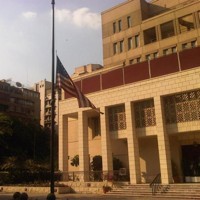Some commentators have argued that last week’s attacks on U.S. embassies in Egypt, Libya and Tunisia will strengthen the radical and anti-Western Islamic factions in those countries. However, a number of political and economic realities suggest that the violent attacks might instead marginalize the extremists and strengthen these countries’ moderate Islamists.
In Tunisia and Egypt, recent elections resulted in governing coalitions led by moderate Islamist parties. But gaining control of the executive branch has made moderate Islamists responsible for dealing with the mounting economic and social problems that have plagued both countries since the 2011 uprisings. Indeed, in both countries, the crisis is so severe that addressing it has become the top priority of the Islamist ruling parties. And doing so will force them to take a strong stand against violent extremists.
Moving forward, the political success of the Ennahda Islamist movement in Tunisia and the Muslim Brotherhood in Egypt will depend on their ability to improve their countries’ economies and create jobs. Neither goal can be achieved without attracting tourists and international investors. The recent mob attacks on U.S. embassies will deter both, setting back a modest economic recovery that began a few months ago. Strong condemnation of these attacks from Cairo and Tunis might anger some Salafi groups whose support played an important role in the electoral success of Islamists in both countries. For ruling Islamists, however, managing the economy is more important at this stage than Salafi support. Moreover, election results have shown that Salafi blocs represent no more than 20 percent of the total vote in either country, not enough to keep Islamists in power in the next round of elections if they don’t fix the economy.

